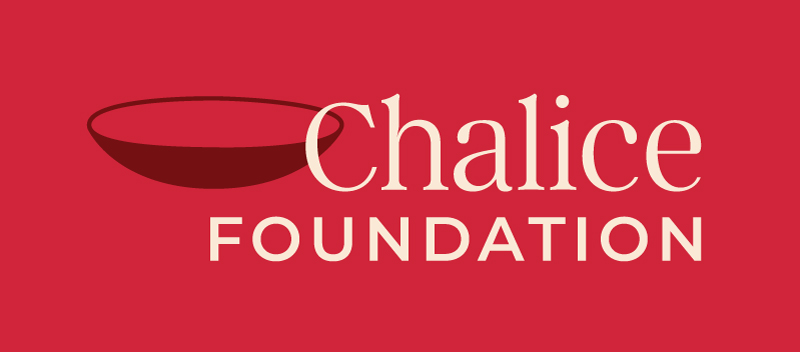This week, co-editor of The Leak Casimira Melican explores new research into PMS and how we need to treat it as something that is both common but important, moving away from negative tropes and into a more nurturing view of something that 80% of menstruators experience.
Pre-menstrual syndrome (PMS) is the umbrella term for a range of physical symptoms usually occurring in the lead up to menstruation (luteal phase) and may include the first few days of menstruation. PMS is common with around 80% of menstruators experiencing at least one PMS symptom each cycle. Culturally, PMS is a stereotypical part of menstruation that is often referred to negatively, connecting both the menstrual taboo and disbelieving women’s pain. PMS is often disregarded as something essential to womanhood, leaning on sexist tropes like hysteria and unpredictability.
PMDD is a severe form of PMS and we are grateful to Adriana Tantau for writing about her experiences with PMDD in a previous post for The Leak which you can read here.
In About Bloody Time, in which over 3400 women in 40 countries were surveyed, women spoke about how often their PMS symptoms were either dismissed altogether or demonised by those around them, and stood in for general attitudes around periods.
Our research told us that women and girls frequently experienced real alienation and anxiety around their periods, with the attitudes often starting and being reinforced at home…In one affecting response a woman recalled her realisation, as a girl, that when her dad joked about her mum having PMS or ‘angry women who must be on that time of the month’, he would now mean her as well.[1]
One respondent shared, “I really loathe and despise the prevalent discourse around PMS and the suggestion that it is a mental pathology (DSM-V). It seems as though PMS is another flaw that keeps women somehow at a lower level than rational, non-cyclical men in the very patriarchal medical and mental health profession discourse.”[2]
Recent research suggests that PMS needs to be taken much more seriously as a “key public health issue globally” after researchers at the University of Virginia analysed more than 230,000 survey results from women aged 18-55 across 140 countries gathered through the menstrual app Flo, to better understand the type of premenstrual symptoms women experience and how those symptoms affect their daily lives.
The most common symptoms reported were food cravings (85.28%), mood swings or anxiety (64.18%), and fatigue (57.3%) being experienced every menstrual cycle.
Other symptoms such as absentmindedness, low libido, sleep changes, gastrointestinal symptoms, weight gain, headaches, sweating or hot flashes, fatigue, hair changes, rashes, and swelling were significantly more frequent with increasing age as women approached menopause.
28.61% of survey respondents said that their premenstrual symptoms interfered with their everyday life during every menstrual cycle, while an additional 34.84% said their premenstrual symptoms interfered with their everyday life sometimes. The researchers state, “Given the impairment caused by premenstrual symptoms, assessing and properly treating premenstrual symptoms is an important clinical and public health issue.”[3]
A improved healthcare response is needed
In About Bloody Time we noted, “many women nominated the attitudes of health professionals they’d seen as adding significantly to their suffering. They felt dismissed, pressured, ashamed and frustrated. Women spoke about their experiences of PMS, Premenstrual Dysmorphic Disorder (PMDD) and the intensification of emotion and existing mental health problems before or during their period, especially in terms of what did and didn’t help…Feeling heard and empathetically understood was often missing, as was useful information and options.”[4]
Jennifer L. Payne, MD, the University of Virginia study’s senior author and director of the Reproductive Psychiatry Research Program at the University of Virginia School of Medicine is “hopeful that the survey data will help women get better care by making healthcare providers more aware of how frequently these symptoms – especially anxiety and mood-related symptoms – occur.
“There are a number of treatment strategies that are available to treat premenstrual symptoms that interfere with a woman’s everyday functioning,” she said. “Increasing awareness of how common these symptoms are, and that if they impact functioning that there are treatments available, will help women improve their quality of life.”[5]
A wider community response is also needed
More broadly, we must normalise PMS as something that can be addressed by our community as a whole by supporting those experiencing it.
“A study in 2015 focused on 60 women who self-identified as ‘PMS sufferers’ and analysed the similarities in their coping mechanisms. The researchers found that all the women’s strategies fell into three categories: self-awareness, self-care, and the positive engagement of other people in their lives as a means of alleviating stress and conflict.”[6]
“Put simply, they found that women can cope on their own really well, by listening to their needs and meeting them, but they will cope better if they can also enlist the help of others, especially those close to them. The fantastic thing about this research is the conclusion that while women have agency and power in their own right, it is enhanced and strengthened through cooperation and openness. This is the opposite of how the taboo can isolate and disempower women.”[7]
The evidence is mounting that not only do we need to acknowledge PMS as a common and normal part of life, we must do more in our communities, institutions, families and wider society to support the majority of menstruators to manage their PMS in a way that is nurturing and accepting.
References:
[1] Karen Pickering and Jane Bennett 2019, About Bloody Time: The Menstrual Revolution We Have to Have, Dugdale Trust for Women & Girls, 102-3.
[2] About Bloody Time, 122.
[3] Liisa Hantsoo, Shivani Rangaswamy, Kristin Voegtline,Rodion Salimgaraev,Liudmila Zhaunova Jennifer L. Payne 2022, “Premenstrual symptoms across the lifespan in an international sample: data from a mobile application”, Archives of Women’s Mental Health, 25:903–910, https://link.springer.com/content/pdf/10.1007/s00737-022-01261-5.pdf
[4] About Bloody Time, 40.
[5] UVA Health 2022, “Frequency of Premenstrual Anxiety, Mood Swings a Public Health Issue, Study Finds”, Newsroom, 22 September, https://newsroom.uvahealth.com/2022/09/06/premenstrual-anxiety-mood-swings-public-health-issue-study-finds/
[6] About Bloody Time, 122-3.
[7] About Bloody Time, 123.

Casimira Melican
Casimira Melican is a Policy and Programs Officer at the Office for Women (Victorian Government) and has been co-editing The Leak with Jane Bennett since April 2020. Casimira has a Masters in International Relations from the University of Melbourne with a focus on policy, human rights and international governance. In 2016, Casimira co-wrote the VWT’s menstrual and menopause workplace wellbeing policy, co-authored Ourselves at Work: Creating positive menstrual culture in your workplace and led advocacy on the policy until June 2021 in her role as Manager of About Bloody Time and Research and Policy Officer at VWT. Casimira is passionate about the ability for policy and research to have real world impact and empower women, trans, non-binary and gender diverse individuals within our society.


